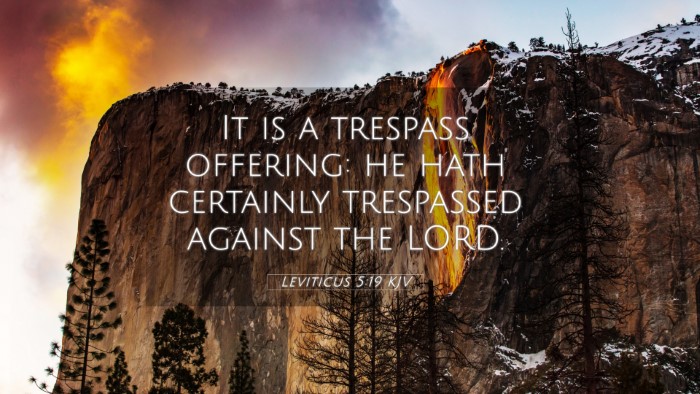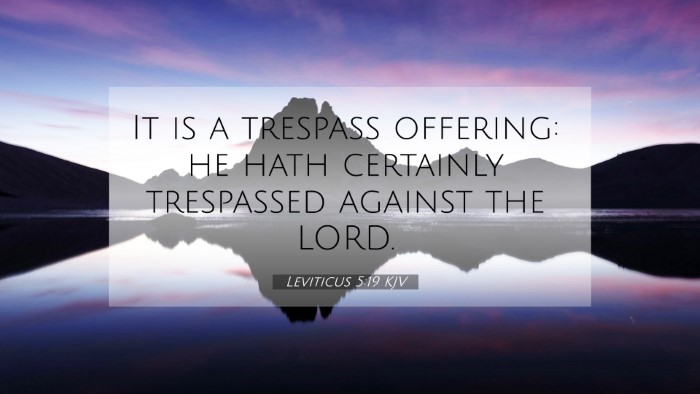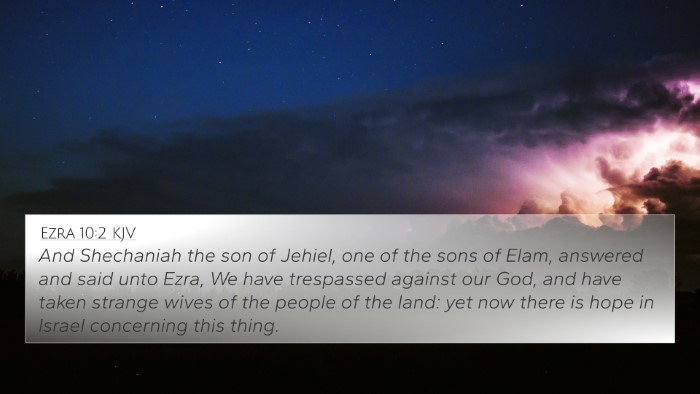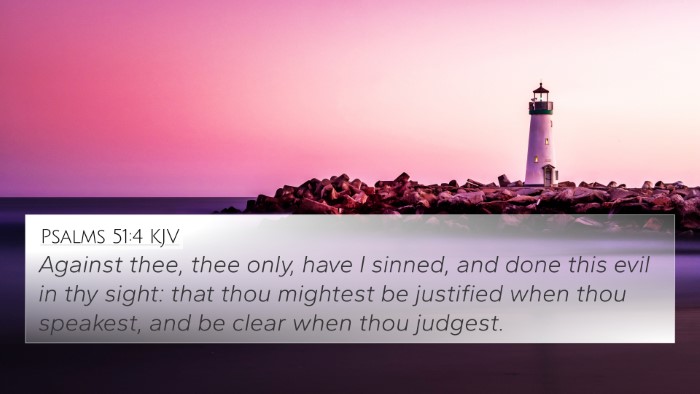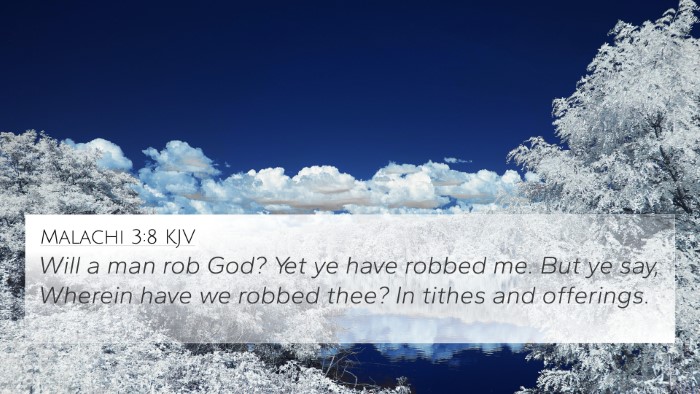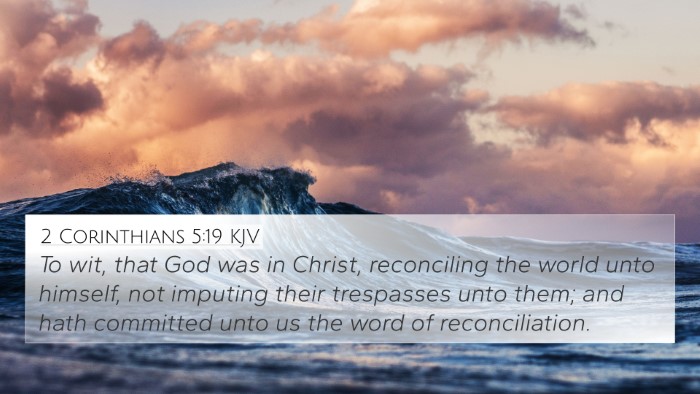Understanding Leviticus 5:19
Leviticus 5:19 states: “It is a trespass offering: he hath certainly trespassed against the Lord.” This verse sheds light on the laws concerning trespasses and how they relate to God's holiness and justice.
Summary of Meaning
This verse encapsulates the idea of unintentional sin or error against God's commandments. It highlights the importance of recognizing one's transgressions and the necessity of making restitution to restore the relationship with God.
Insights from Commentaries
-
Matthew Henry
According to Matthew Henry, this verse emphasizes the seriousness of sin, even when committed unintentionally. He points out that God's laws require acknowledgment of wrongdoing and the offering of a sacrifice to atone for the sin. This reflects the principle of accountability before God.
-
Albert Barnes
Albert Barnes elaborates on the concept of a trespass offering, highlighting its role in demonstrating sincere repentance and the desire to make amends. He notes that recognizing one's missteps is vital for spiritual growth and maintaining a right standing before God.
-
Adam Clarke
Adam Clarke provides a detailed explanation of the nature of the trespass offering, emphasizing its purpose in restoring the relationship with God. He asserts that this acknowledgment is crucial for both individual and communal spirituality and illustrates God's merciful provision for repentance.
Bible Cross-References
Leviticus 5:19 can be linked to several related verses that provide further insight into the theme of sin, repentance, and atonement:
- Exodus 22:1 - Discusses restitution for theft, highlighting the principle of restoring what was taken.
- Numbers 5:6-7 - Outlines the requirement for confession and restitution when one has wronged another.
- Psalm 51:3 - David's confession emphasizes the importance of recognizing sin before God.
- James 5:16 - Encourages confession to one another, promoting accountability within the community.
- 1 John 1:9 - Affirms the promise of forgiveness for those who confess their sins to God.
- Isaiah 53:10 - Prophesies the sacrificial system that fulfills the need for atonement, linking to the concept of trespass offerings.
- Matthew 5:23-24 - Jesus teaches the importance of reconciliation before offering gifts to God.
Exploring Connections Between Bible Verses
Understanding Leviticus 5:19 in the wider context of Scripture allows for a richer interpretation of themes related to sin and atonement. This verse serves as a connection point to the greater narrative of God's redemptive plan, illustrating the continuity between the Old and New Testaments regarding the nature of sin and the means of redemption.
Comparative Bible Verse Analysis
In performing a comparative Bible verse analysis, one can trace the evolution of the concept of sin from the Law to the teachings of Jesus and the letters of Paul. The treatment of sin in the Old Testament laws serves as a foundation for understanding New Testament doctrine on grace and forgiveness.
Tools for Bible Cross-Referencing
To fully engage in cross-referencing Biblical texts, one can utilize a variety of tools. These include:
- Bible concordances for locating specific verses and their relations.
- Bible cross-reference guides to track themes and connections in the text.
- Digital Bible resources that offer advanced search options for deeper study.
Conclusion
Leviticus 5:19 invites believers to reflect on their relationship with God and the serious nature of sin. Through understanding of this verse and its connections with other Scriptures, one gains insight into the overarching themes of sin, grace, and redemption that permeate the entire Bible.
By engaging with scriptural cross-referencing, readers can deepen their knowledge and understanding of God's word, fostering a more profound spiritual journey.

